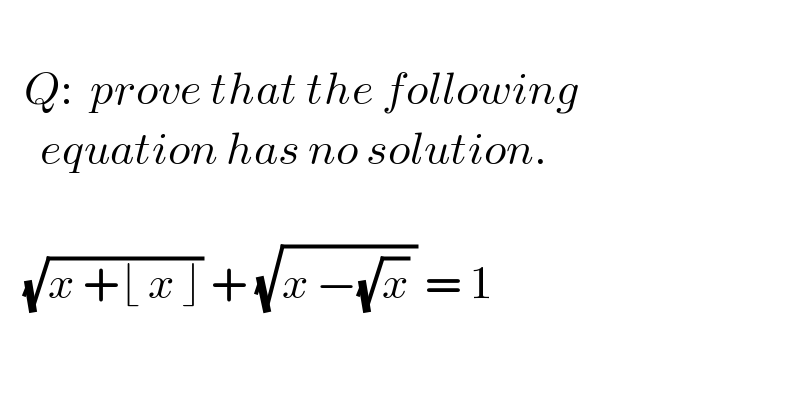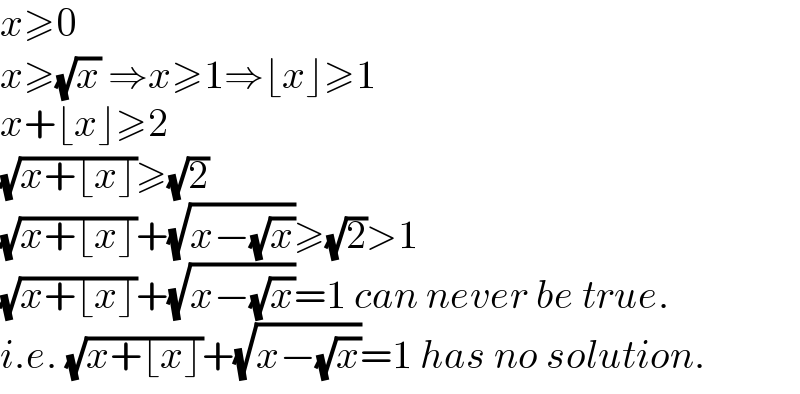
Question and Answers Forum
Question Number 175653 by mnjuly1970 last updated on 04/Sep/22

Answered by mahdipoor last updated on 04/Sep/22
![f(x) = (√(x−(√x) ))+ (√(x+[x])) D_f =∀x≥1 for I_n =[n,n+1) n≥1 f_n (x)=(√(x−(√x)))+(√(x+n)) D_x (f_n (x))=((1−(1/(2(√x))))/( 2(√(x−(√x)))))+(1/( 2(√(x+n)))) >0 f is incrise function in I_n ⇒ R_f in I_n =[f_n (n),f_n (n+1)) ⇒⇒ R_f in D_f =I_1 ∩I_2 ∩... = [(√2),(√3)+(√(2−(√2))))∩[(√4)+(√(2−(√2))),(√5)+(√(3−(√3))))∩... ⇒(√2)≤R_f ⇒f(x)≠1 for ∀x∈D_f](Q175659.png)
Commented by mnjuly1970 last updated on 04/Sep/22

Answered by mr W last updated on 04/Sep/22

Commented by mnjuly1970 last updated on 04/Sep/22

